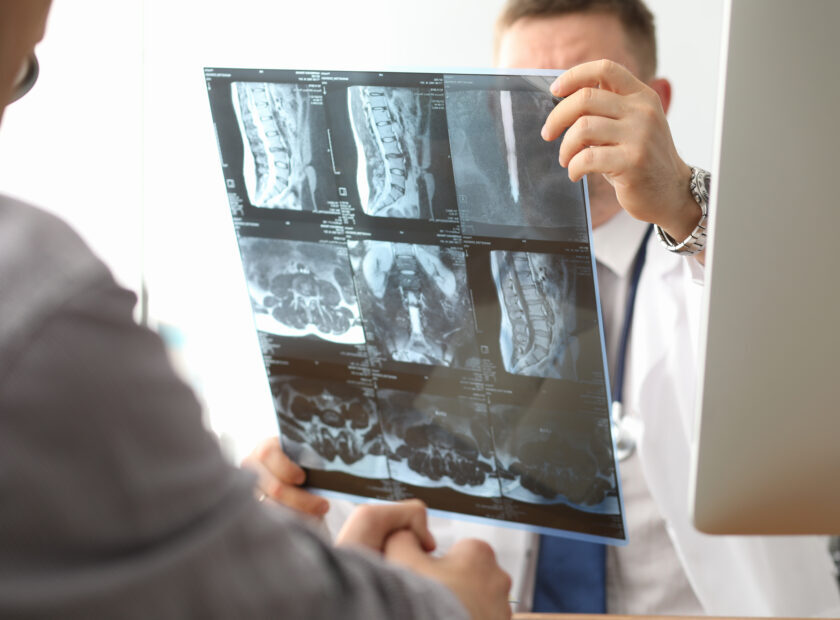Revitalize Your Running and Cycling Routine
Running and cycling are popular activities that offer numerous health benefits, including improved cardiovascular fitness, mental clarity, and overall well-being. However, these activities can also lead to back pain if not approached correctly.
Understanding the Causes of Back Pain in Running and Cycling
Both running and cycling are physically demanding activities that can significantly impact the body, especially the back. For runners, the repetitive impact of each step places considerable stress on the spine, potentially leading to wear and tear on the spinal discs over time. This continuous pounding can result in micro-traumas that accumulate, causing chronic pain and discomfort. Cyclists, on the other hand, often maintain a hunched posture for extended periods. This posture can strain the lower back, leading to muscle fatigue and discomfort. The prolonged forward-leaning position can compress the discs in the spine and overstretch the muscles and ligaments, contributing to back pain.
Muscle imbalance is another significant factor contributing to back pain. Running predominantly engages certain muscle groups, like the calves and quadriceps, while neglecting others, such as the hamstrings and glutes. Similarly, cycling can overwork the quadriceps and underuse the hamstrings and glutes, creating an imbalance that results in poor posture and increased stress on the back muscles. Incorrect form, such as overstriding while running or using an improperly fitted bike, can exacerbate these issues. Overstriding can lead to excessive impact forces traveling up the legs to the spine, while a poorly fitted bike can cause misalignment and additional strain on the back.

The Role of Equipment In Your Routine:
The role of equipment cannot be overlooked in preventing back pain. Runners using improper shoes without adequate support can suffer from poor alignment and increased pressure on the back. Wearing shoes that do not provide the necessary cushioning and support can lead to a misalignment of the spine and legs. Cyclists using a poorly fitted bike may experience similar issues due to inadequate support and poor posture, leading to discomfort and pain. Skipping essential warm-up and cool-down routines can also contribute to muscle stiffness and joint issues, further increasing the likelihood of back pain. Properly fitted equipment and regular stretching exercises are crucial in preventing these problems.
The Long-Term Consequences of Ignoring Back Pain
Ignoring back pain can lead to severe long-term effects, significantly impacting your quality of life. Mild discomfort can escalate into chronic pain, making everyday activities challenging and reducing your overall mobility. Persistent back pain can limit your range of motion, making it difficult to perform even simple tasks such as bending, lifting, or sitting for prolonged periods. Over time, this limitation can lead to a sedentary lifestyle, exacerbating other health issues such as obesity and cardiovascular problems.
Compensating for back pain can result in additional injuries and discomfort in other areas, such as the hips, knees, and shoulders. When the body tries to alleviate pain in one area, it often places undue stress on other parts, leading to a cascade of musculoskeletal problems. Prolonged back pain can also contribute to degenerative disc disease, a condition that causes the discs between the vertebrae to break down, potentially requiring surgical intervention. Moreover, chronic pain often leads to mental health issues like depression and anxiety, further diminishing your well-being. The constant discomfort and reduced ability to engage in enjoyable activities can significantly affect mental health, leading to a decline in overall quality of life.

When to Seek Professional Help from an Orthopedic Surgeon
If you’ve been experiencing back pain, it’s crucial to seek help from a professional orthopedic surgeon like Brian Rich, MD. Early intervention can prevent the progression of pain and help maintain a high quality of life. Dr. Rich specializes in diagnosing and treating back pain using both non-surgical and surgical methods tailored to each patient’s needs. His approach includes a thorough evaluation of your medical history, physical examination, and appropriate imaging studies to determine the underlying cause of your pain. Whether your pain stems from running, cycling, or another cause, Dr. Rich can help you find relief and regain your active lifestyle through personalized treatment plans.
About Brian Rich, MD
Brian Rich, MD, is a highly skilled orthopedic surgeon known for his expertise in treating back pain. He combines advanced medical techniques with a personalized approach to ensure the best outcomes for his patients. Dr. Rich’s commitment to his patients’ well-being makes him a trusted choice for those seeking relief from back pain. He stays updated with the latest advancements in orthopedic surgery and non-surgical treatments to provide the most effective care. Dr. Rich believes in a holistic approach, addressing not only the physical aspects of pain but also the emotional and psychological impacts, ensuring comprehensive care for his patients.




